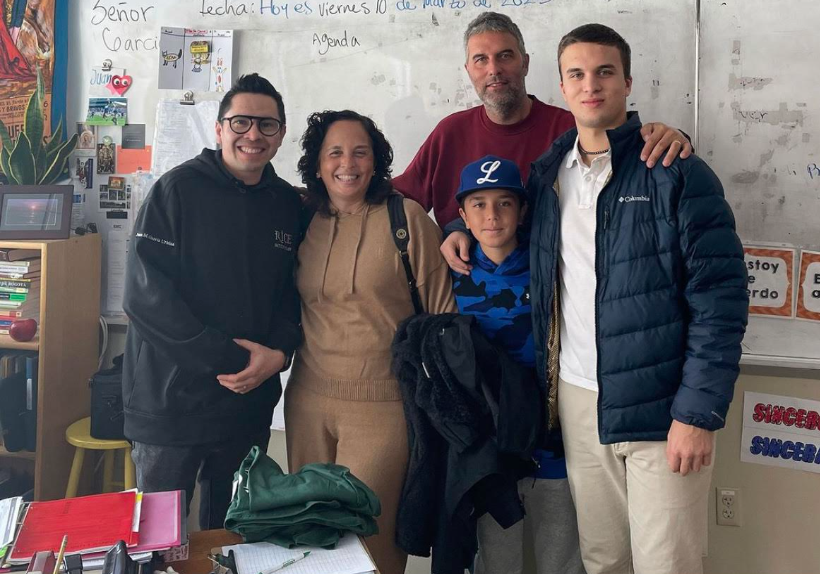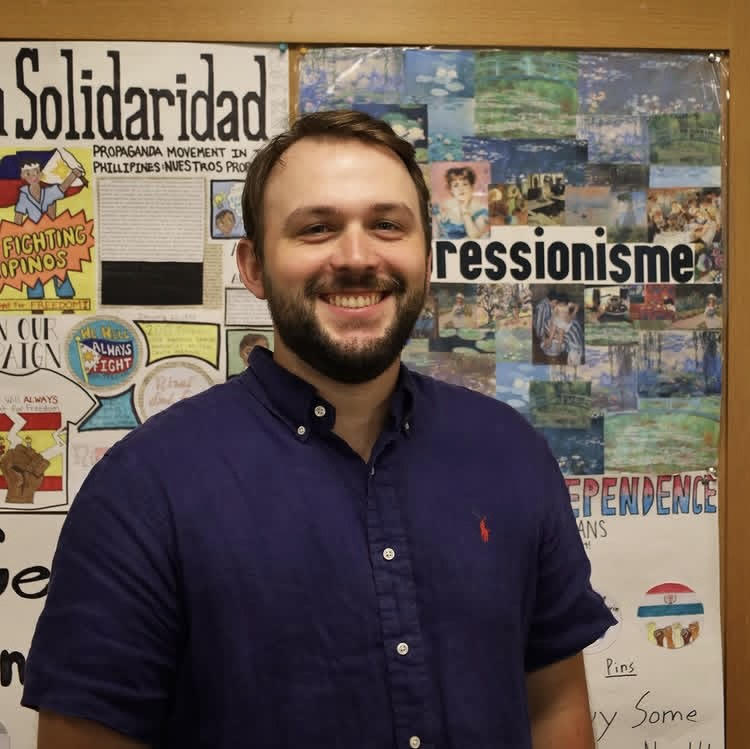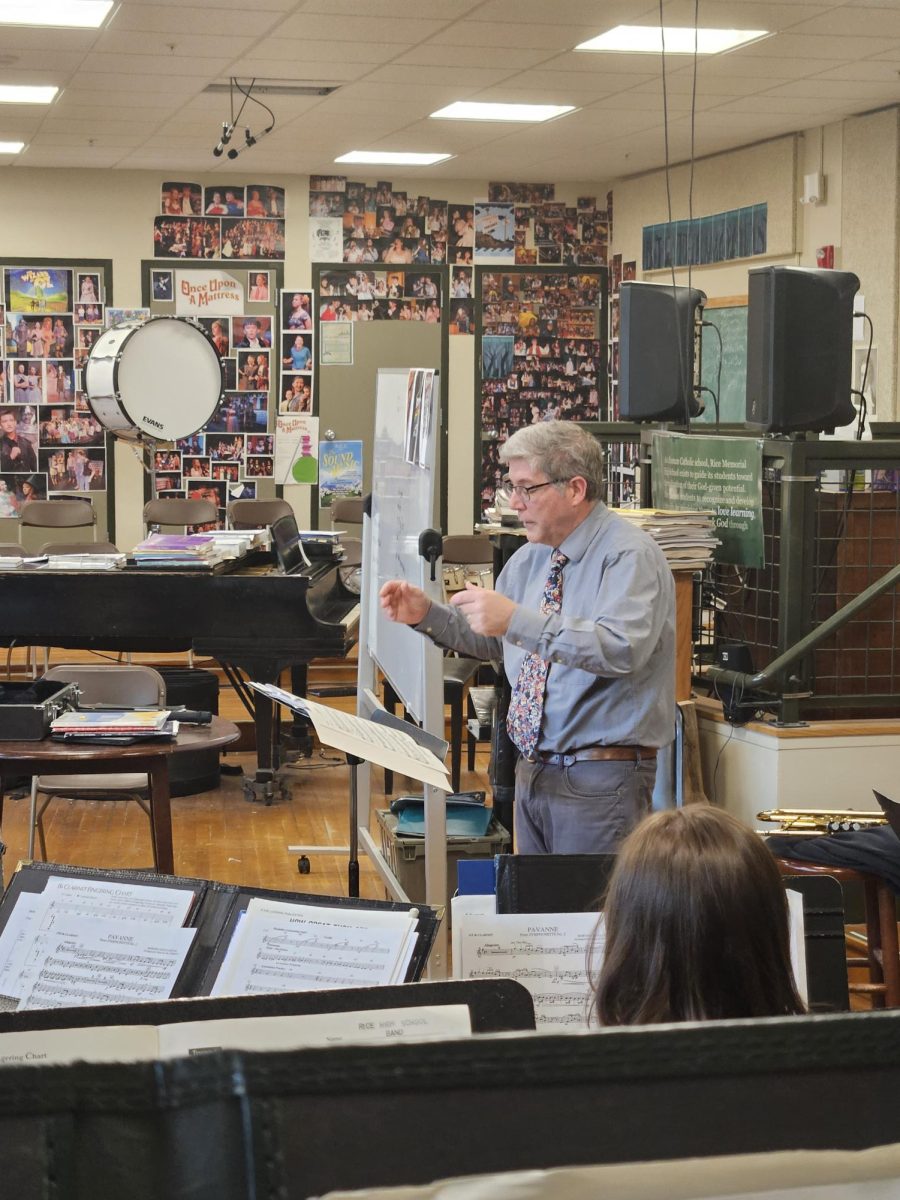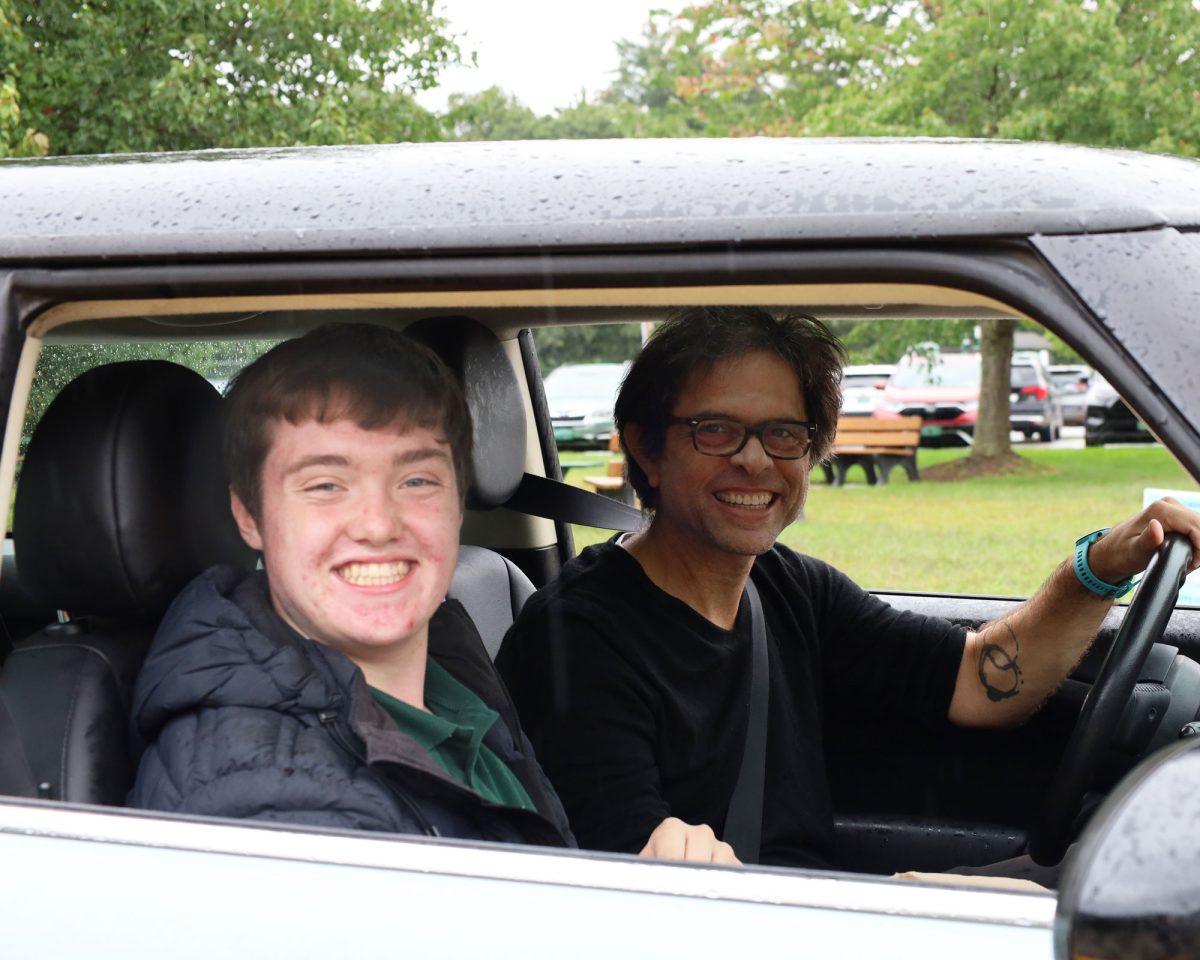Juan Garcia Urbina, A Unique Fun-Loving Character Who Adds Joy, Positivity, and Diversity to the Lineup In All the Right Ways
Juan is shown with exchange student Juan Scandolo from Argentina and his family in the Spanish classroom. (Photo/@rmhsvt Instagram)
June 5, 2023
Juan Garcia Urbina, simply known as Juan embodies what a teacher should be. His chipper spirit and captivating persona always make for an astonishing and thoughtful class.
He connects with students like no other. His friendly demeanor welcomes all having even the shyest willingly contribute in class. He is a beacon of hope for all to look up to. His perseverance which has been a key trait of his personality all of his life shows in and out of the classroom.
He will be remembered for years to come.
Did you know you wanted to be a teacher from a young age?
I knew when I turned 18. I was 18 and I was in a catholic school one of the assignments was that I had to go to younger grades and help students learn and I loved to see their faces when you taught them stuff they previously hadn’t known. They were so grateful. I also wanted to learn English, so I traveled to the U.S. I always wanted to go to New York, so I did it.
What made you take the leap from going to Colombia to being a teacher in Vermont?
It was about a woman. I came to the U.S. to make money and study for a master’s because I didn’t want to be in school debt. I made the money and was on the way back and I needed just to finish up some paperwork and some stuff to formally leave the country. And by doing that I found a really good job as a professor in Colombia and they offered to pay for my schooling and degree for free. So they sponsored me. I came to study and be with the love of my life.
Did you ever see yourself being who you are now?
Never. I never saw myself teaching at a catholic school when I was in Colombia. I was a college professor and I taught I did teach Spanish to international and business people. I used to work with the Japanese embassy in Colombia. When I studied what I studied I did not picture myself studying and teaching Spanish once again. When I had kids is when I realized I was truly in love with teaching as a whole.
What is the logic in your approach to your teaching style?
In addition to teaching grammar, to incorporate real context and accurate readings. Authentic material meaning from the real source and discuss them in class. I also like to teach grammar parts and cultural parts that are not in the book. When I was a student, there are things you only learn in the book but are only grammar orientated. There are cultural pieces that are not in the book that I always wondered about as a language learner and I know other people were wondering those same questions. So when I brought them to the class I realized how important it was.
Do you believe your exciting and relatable personality resonates with students and helps them learn better? Does it improve the learning environment?
I think rapport with the students is vital. To feel that the things learned goes beyond the classroom and that what they are taught in school can be learned and used in a tangible and meaningful way. The meaning may be in a real-world scenario such as when you watch a movie, understand jokes, and just communicate in a meaningful way outside of the classroom.
How is your relationship often with Spanish-speaking exchange students? Does your presence ease their nerves initially?
They feel validated because they can relate culturally to someone and in addition to that they connect by speaking the same language. Most of the time native speakers feel left out because there is no cultural competency from general Spanish teachers in the U.S. It’s bigger than that at Rice because they know we are culturally tied. Even with previous students like Dario. We would talk about soccer and were into it because it almost runs in our blood. That would result in a deep connection over time that would help students ease into their new unfamiliar environment
Do you intentionally try to expose your students to other cultures that be maybe through Marzo de Musica? How do you think this benefits them and their learning?
I think it creates cultural awareness and helps students realize there is a world outside the US. Whether they approach the world differently and I like classroom the approach to the difference I don’t say what’s right or wrong it’s just students forming perspectives on what they see and how they approach it.







